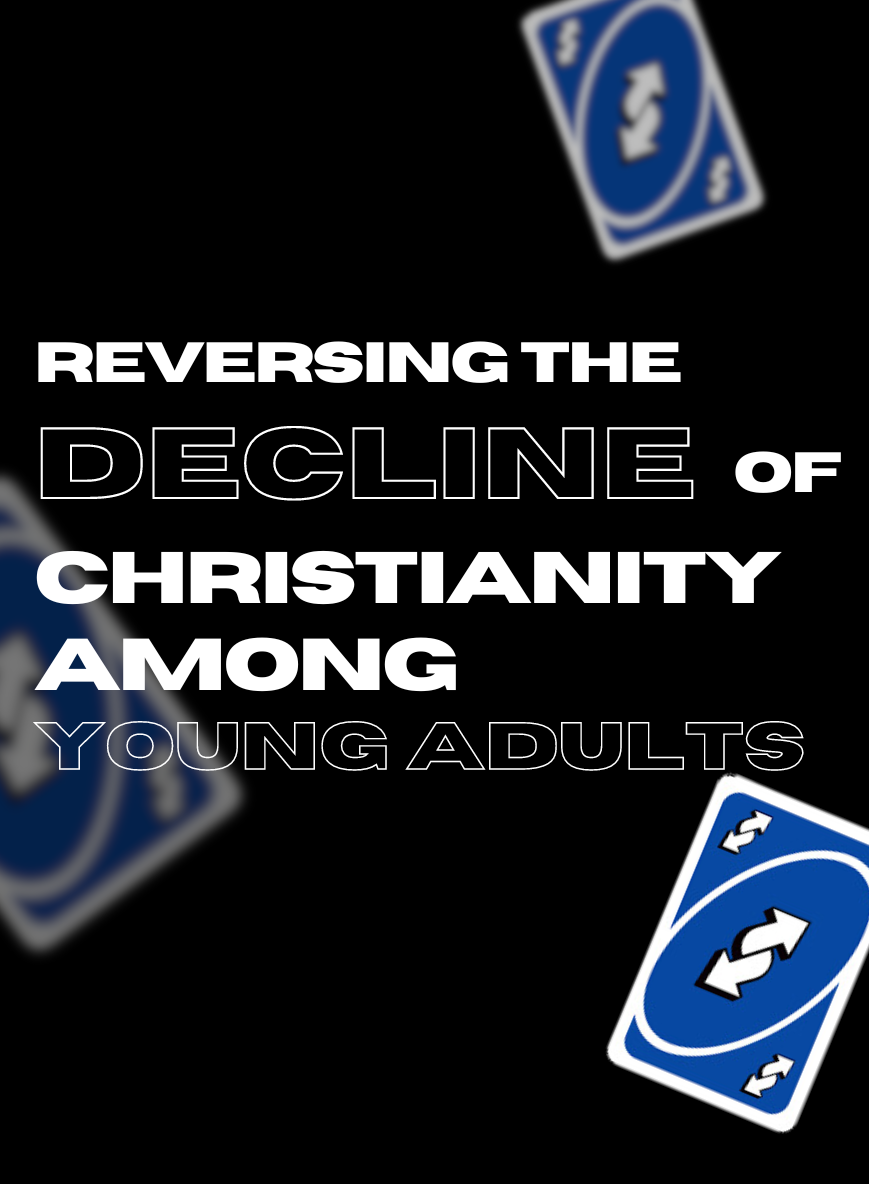
THE TERM ‘DISCIPLE’ IS LIMITING
Calling those you disciple in your Young Adult ministry, a ‘disciple’ is not helpful.
You’re probably confused and ready to cast stones hearing this, after all, we’re all taught, through our churches, parents, and even peers, that we’re disciples of Jesus. Even when he was alive, Jesus had disciples who followed him – who we refer to as the twelve disciples. Jesus’ departing words even include to go and make disciples (Matthew 28:19-20). So WHY then, is using the term ‘disciple’ not fitting?
Bear with me, as we explore how your YA’s might actually be considered MORE than just a disciple – more than just a student, more than just a follower, more than just a consumer.
3 REASONS WHY THE TERM DISCIPLE IS LIMITED:
1. ITS HISTORICAL MEANING DOESN’T MATCH THE MODERN USAGE OF THIS WORD
Simply put, A ‘DISCIPLE’ today, doesn’t mean what it meant back then. The young adults that you are discipling, may not know the context to what being a disciple involved in its historical context.
We live in a vastly different context to that of our Jewish and Gentile forefathers, with a different set of interpretive lenses through which we understand and enact the word disciple. In a Western, twenty-first-century hearing of the word disciple, it can be easy to think simply of the name we give someone dedicated to learning, with an overly scholarly sentiment. Perhaps ‘student’ would be synonymous with disciple in this context. Even more dangerous is the connotation that a disciple is a somehow ‘advanced’ or ‘spiritually elite’ Christian.
Calling Christians disciple in a modern context may not be fitting.
2. A DISICPLE SHOULD BE MORE THAN JUST A STUDENT
It would be frustrating if those you were disicpling, remained students forever. A student is reasonably passive in the learning/growing climate, receiving the instruction of a ‘master’ in a given field.
A student is never expected to teach or invest in their fellow student.
Likewise, a disciple is someone being discipled, not someone who is discipling others. It is ‘not their job’ to lead others towards maturity in the discipline they’re learning, simply to master the content being taught.
The concern about calling those that you’re discipling, a ‘disciple’ relates to the IDENTITY this label ascribes. Norton teaches that identity shapes the way one interacts with the world around them (Norton, 2016). Hence, the identity of a Christian as a student/disciple who receives from a master may be insufficient for those we are investing in. It may limit them to only ever being a learner.
3. A DISCIPLE IS A TALMID- IT’S AN OCCUPATION
In the Ancient Near-Eastern (ANE) context, the term disciple appearing in the Bible is talmid. Becoming a talmid bears significantly more weight than just becoming a student taught by a master – or a disciple whose job is to be discipled. An ANE Jewish disciple would find a rabbi they admired, who they wanted to emulate, and devoted themselves to mirror their thoughts, attitudes, and actions (Vander Laan, n.d.).
Gracin & Budicelić outline 4 keys to understanding a disciple in Jesus’ era.
Disciples were people who were devoted to:
(1) memorising their rabbi’s words
(2) learning the traditions and interpretations of their rabbi
(including how the rabbi lived out their faith tradition)
(3) Imitating their rabbi’s ways, in action, attitude and speech
(4) raising their own disciples who will carry on the legacy and follow the same four steps
(Gracin & Budiselić, 2019)
DISCIPLER- A BETTER TERM TO USE
The term discipler may be a more fitting way to communicate the occupational nature of becoming a disciple. Discipler is a definitive occupation, something someone can become that yields active participation in more than just being a student: Being a discipler requires being a disciple AND a disciple-maker. After all, the talmid (every disciple of Jesus) aims to become a disciple-maker! Jesus’ last command confirms this, calling his disciples to go and make more disciples, who would be taught to obey all he has commanded, which includes the final commission to make more disciples (Carson, 2017).
DISCIPLE = someone who is being discipled
DISCIPLER = someone who disciples people – a disciple-maker
Carson additionally indicates the emphatic nature of the command to ‘make disciples’ given to Jesus’ disciples, who became an archetype for Jesus’ disciples throughout the ages, reiterating that
“it is binding on all Jesus’ disciples to make others what they themselves are- disciples of Jesus Christ.” (Carson, 2017, ch. 2)
BEING A DISCIPLER IS LIKE BEING AN APPRENTICE CARPENTER
The concept of discipler reminds me of when I apprenticed as a carpenter (following in the Lord’s footsteps!). When I commenced my apprenticeship, I immediately was a carpenter. I did everything a carpenter would do, from the 5 a.m. mornings and coffee on the commute to buying new tools and building houses with them. I even immediately inherited the expectations of friends and family that I’d be able to ‘help out’ with construction projects around the house. Admittedly, upon commencing the trade, I was an amateur who would make mistakes, work slowly, and demonstrate far less skill and knowledge as my ‘rabbi of the worksite;’ however, I still enjoyed full participation in the vocation of carpentry because I was a carpenter.
I even soon began investing in other apprentice carpenters as they commenced their careers in the months and years following. While I wasn’t a fully qualified carpenter (a four-year journey), I was able to make a positive difference in those younger, who were also on the journey.
While I had limited experience, I could still pass on what I HAD received of the words, traditions, actions, attitudes and conduct of my master (filtered, of course. My ‘master’ in carpentry wasn’t Jesus, after all) to benefit others following the way.
Likewise, as a disciple of Jesus who is on a lifelong journey to become ‘like [the] Teacher’ (Matt 10:25), I, like you, am still able to enjoy full participation in the vocation of a discipler, investing in those around me to be discipling them as fellow disciplers, practising and refining our vocation together.
It’s just as Pr. Rick Warren says, “Every disciple is a discipler or a discipler in training.”
THOSE YOU DISCIPLE ARE MORE THAN JUST DISCIPLES, THEY ARE DISCIPLERS
How exciting is it to view your young adults ministry as one where those you are investing in can be more than just a disciple- a good student, a listener, or learner, BUT instead, a ministry where those you invest in are actively living out the identity of disciple makers.
A ministry of YA’s who actively practice and enact the same activities as their ‘master’ discipler, and view themselves in the same way.
A ministry of YA’s who see themselves as more than just students, where it begins to shape and impact their identity and vocation.
A ministry of YA’s who more accurately grasp their role to be a ‘disciple’ of Jesus, as being one who makes disciples of Jesus.
A ministry of YA’s who mare more fully devoted to the words, traditions and interpretations, actions, attitudes and conduct, and disciple-making vocation of Jesus whom we love and follow.
Discipler indicates the journey we are on to become spiritual parents who disciple others to become themselves, spiritual parents (Putman et al., 2013).
Be utterly blessed
Your brother in Christ,
Daniel Zeibig – GenJ Team member
If you want to know more about how to be a discipler practically and see disciplers multiplied in your YA ministry, GenJ can provide you with tools, principles or even a framework for multiplying disciplers. If you have more questions, reach out to GenJ – @GenJOfficial
Reference List
Carson, D. (2017). Matthew. Zondervan Academic. https://www.perlego.com/book/560682/matthew-pdf
Gracin, M., & Budiselić, E. (2019). Discipleship in the Context of Judaism in Jesus’ Time – Part 1. 13. 205-222. https://hrcak.srce.hr/file/333538
Norton, B. (2016). Identity and language learning: Back to the future. Tesol Quarterly, 50(2), 475-479. https://faculty.educ.ubc.ca/norton/Norton%20TQ%202016.pdf
Putman, J., Harrington, B., & Coleman, R. (2013). DiscipleShift. Zondervan. https://www.perlego.com/book/558264/discipleshift-pdf
Vander Laan, R. (n.d.). Rabbi and Talmidim. That the World May Know. https://www.thattheworldmayknow.com/rabbi-and-talmidim#:~:text=These%20students%20were%20called%20talmidim,of%20respect%20for%20the%20teacher



